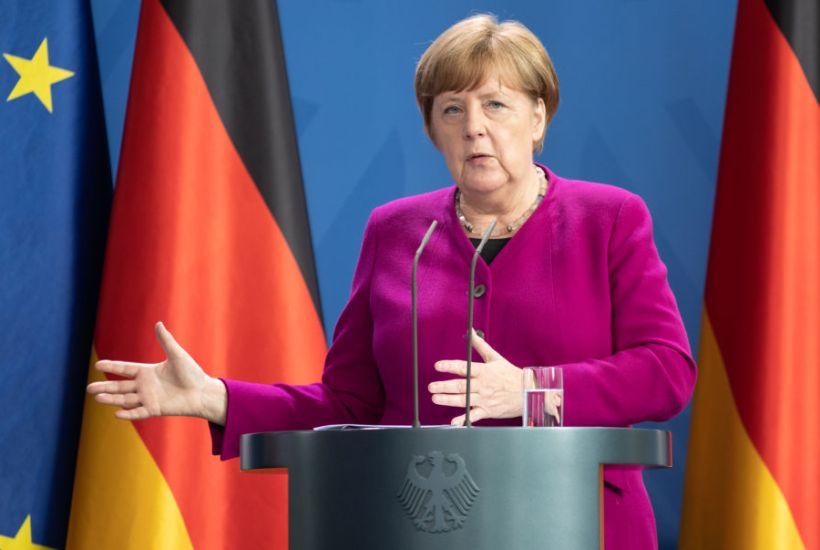Coronavirus is grim news for all major economies and Germany is no exception. The country’s economic output decreased by 2.2 per cent during the first quarter of the year, the sharpest fall since the 2008 crash and the second biggest since German reunification in 1990. A double-digit dip in the second quarter, when the full impact of the lockdown restrictions introduced in March become more visible, seems likely. But while Germany is not alone in facing up to grim economic statistics, it is using its economic clout – unavailable to poorer countries in Europe – to try and spend its way out of the crisis.
Many German employers have been able to switch staff to shorter working hours during the outbreak, avoiding mass layoffs, under the terms of a government rescue package. The crisis is already tearing a huge hole in the public finances, but Angela Merkel is preparing another economic shot to help companies recover from the pandemic.
Back in March, Merkel’s government asked the national parliament to suspend a constitutionally enshrined government debt brake to finance a hugely expensive plan which included an unlimited credit scheme for small, medium-sized and large companies. It appears the German chancellor and her cabinet are giving up their ambitions to maintain a balanced public budget for the foreseeable future. But will the enormous bill be worth it?
Berlin’s approach is to rescue as many businesses and jobs as possible. Lufthansa is the first prominent company that is expected to benefit from a considerable injection of taxpayer cash. After Air Berlin went under in 2017, Lufthansa became the last major airline based in Germany. The company could receive about €9 billion (£8 billion), pending further negotiations between the German government and the European Commission.
The Lufthansa rescue would, in theory, save over 100,000 jobs – but job cuts could still happen down the road. After all, while Berlin is being generous now, the money is not entirely unconditional, and businesses like Lufthansa will have to find a way to become profitable again.
But while the pros and cons of big public spending are debatable, Merkel’s generosity on behalf of the German taxpayer is reaping its rewards. Business and consumer morale have already rebounded in Germany, according to a recent study by the Institute for Economic Research. It is expected that capital investments and private consumption could increase again due to the growing trust in Berlin’s decision-makers and the injection of large sums of taxpayers’ money into the economy and local governments which could then give out service contracts to private companies.
Fritzi Kohler-Geib, of the state-owned KfW bank that is involved in granting loans to businesses, recently argued that ‘new confidence in the future is the key’ to get out of the coronavirus-induced hole. ‘In order to strengthen and consolidate the coming recovery, it is essential to quickly draw up a growth and investment programme,’ she said.
What we are witnessing in Germany touches on the age-old question of whether public deficit spending is justified to generate an intangible value like trust in the financial markets, the economy, and among consumers. Berlin was strictly focused on keeping public budgets balanced for almost a decade. Once the effects of the crisis vanish it may go back to such a strategy, though that is not guaranteed.
Britain reacted similarly in the early stages of the pandemic in terms of its economic policies, unveiling emergency financial support for the economy in March and protecting more than 8 million jobs through the Treasury furlough scheme. However, after government borrowing surged by £62 billion in April, Chancellor Rishi Sunak is expected to present a plan to scale back the support at the end of the summer.
As in Germany, economists in Britain have warned that being afraid of a growing public deficit could end the path to economic recovery prematurely, trigger more job cuts, and nullify what has been done in the past few months. Both Britain and Germany are at a point in this economic crisis where they may break out in different directions.
Got something to add? Join the discussion and comment below.
Get 10 issues for just $10
Subscribe to The Spectator Australia today for the next 10 magazine issues, plus full online access, for just $10.




















Comments
Don't miss out
Join the conversation with other Spectator Australia readers. Subscribe to leave a comment.
SUBSCRIBEAlready a subscriber? Log in